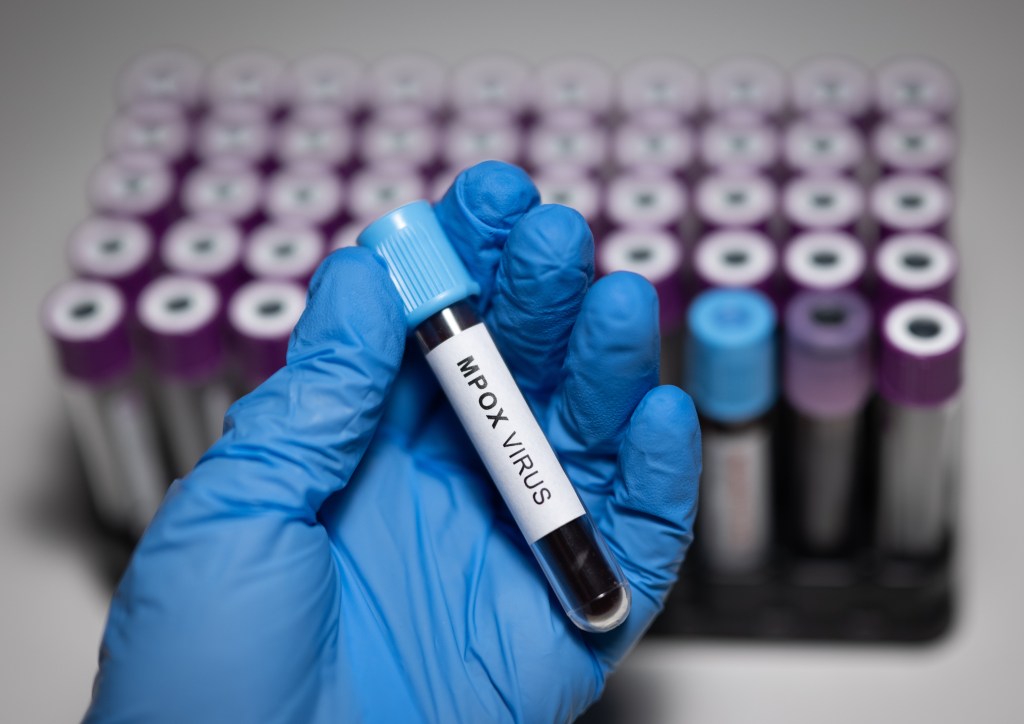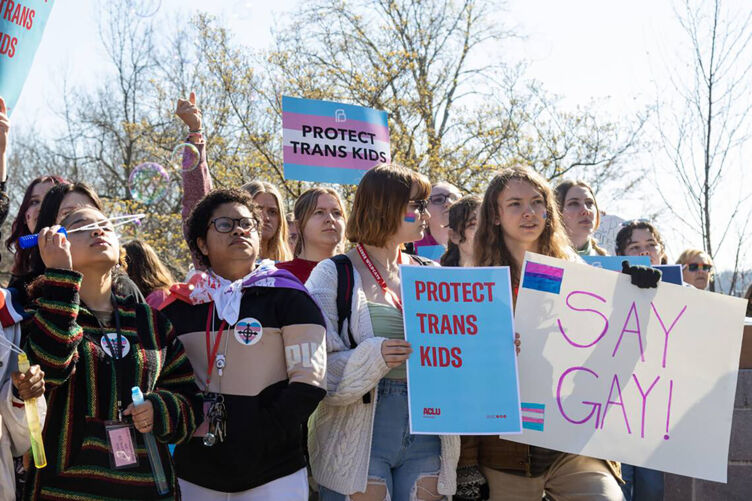Experts detail what LGBTQ+ healthcare may look like under Donald Trump’s new administration
With President-elect Donald Trump just under two months away from taking office and a slew of troubling cabinet appointments making headlines — including anti-vax crank Robert F. Kennedy Jr. for Health & Human Services (HHS) Secretary — LGBTQ+ Americans are understandably concerned about what a second Trump administration will mean for our rights and healthcare.
In a recent interview with the Washington Blade, Human Rights Campaign (HRC) director of HIV and health equity Torrian Baskerville acknowledged the fears many LGBTQ+ people, particularly those who are Black, trans, and/or living with HIV, are experiencing around healthcare in light of both Trump’s rhetoric and the proposals laid out in Project 2025.
“While we are desiring and hoping for the best,” he said, “the reality is that things that we have seen, at least the rhetoric, hasn’t been hopeful. And so we’re just hoping that there are guardrails in place that help to maintain and control as best as possible some of the things that may be going on.”
Speaking prior to Trump’s announcement of Kennedy as his pick for HHS secretary, and of Marty Makary and former Rep. Dave Weldon (R-FL) to lead the Food and Drug Administration (FDA) and the Centers for Disease Control and Prevention (CDC), respectively, HRC senior public policy advocate Matthew Rose weighed in on the importance of the incoming President’s choices for those positions.
“HHS will be very important for us,” Rose told the Blade. “Who they put at the Office of Civil Rights at HHS will be incredibly important for us. The Assistant Secretary for Health has, under Democratic administrations, and in Republican administrations, been a champion for us, sometimes.” Admiral Brett Giroir, Trump’s Assistant Secretary for Health during his first administration, Rose noted, “did what he could for us.”
While Rose said he’s less concerned with Trump’s pick to lead the National Institutes of Health — “unless they find someone really, really crazy” — he said that the FDA appointment “is a worry because it could change just how we view drugs and drug regulations and how those get approved.”
Trump’s pick for director of the Office of Management and Budget (OMB) is also a concern, Rose said, “because the people who make the budget decide how money gets spent.”
On Monday, Trump nominated Russell Vought, described as a “key architect” of Project 2025, for his OMB director. In a recent interview with Democracy Now, ProPublica reporter Molly Redden indicated that Vought is likely to use the position to block funding for programs and organizations — like Planned Parenthood — that don’t align with Project 2025’s radical right-wing agenda.
When it comes to HIV care and prevention, Rose looked to the first Trump administration: “The HIV community has continuously reminded Republicans that Donald Trump did create the Ending the HIV Epidemic initiative that has helped move the needle,” he said. “And so there is some promise there. They aren’t all full-on, like, anti-PrEP all the time, but they are wary of it.”
However, Rose predicts potential conflict between efforts to curb the HIV epidemic and Project 2025’s anti-LGBTQ+ agenda.
“Those same people who said, ‘Wow, these HIV numbers are really bad and we should do something about it’ were like, ‘But we hate all these LGBTQ people and their health, and so we’re not going to have any non-discrimination [rules], and we don’t care if we kick them off their health care, and we don’t care if they’re invisible in society,” Rose explained. “Given where the epidemic has always been in the community, it’s hard to end the HIV epidemic without talking about LGBTQ people and the resources that we use in the community, and the lives that we live, and the lives that we have.”
Rose said he also expects “greater deference” in the new administration to religious exemptions and so-called conscience clauses, which allow healthcare providers to refuse to provide certain services that conflict with their religious beliefs.
Rose also noted that every budget produced during the first Trump administration “decimated funding for the CDC and HRSA and HHS in all of the HIV line items.”
“He didn’t wholesale eliminate anything, but he shaved those things down to bare bones,” Rose said.
Access to PrEP and other contraceptives under the Affordable Care Act’s preventive services coverage requirement could also be in even greater jeopardy. Experts expect the ongoing legal battle in Braidwood vs. Becerra — a legal case challenging the Affordable Care Act’s requirement for insurers to cover preventative healthcare — to eventually reach the Supreme Court, and Rose thinks the new Trump administration could reverse the Biden administration’s position supporting the landmark healthcare law’s requirement that insurance providers cover PrEP.
“We’re actually very concerned about the government reversing its role,” Rose said. “Changing the position on Braidwood is pretty quick and easy for them to do. They can pull out of that pretty fast.”
“It’s still an active case,” he added, “and we don’t know what’s going to happen if the U.S. government switches its position on it. I imagine that state attorneys general, who have been tracking the case, would step in, but we’ll have to see what their capacity looks like.”
Rose indicated that it will likely take a while for the incoming Trump administration to upend healthcare. “There’s just a lot of regulation to get through,” he said. While the new administration is ready to implement its immigration policies on day one, Rose said he expects “less acute pain” in the realm of healthcare in the early day.
But even Trump’s immigration policies will impact public health, causing a “chilling effect” for undocumented immigrants or those living in mixed-status families who need to access care.
Baskerville also noted that concerns about safety that Trump’s rhetoric inspires, particularly among trans people and undocumented immigrants, may be a major roadblock for those communities seeking the care they need in the years ahead.
“If folks aren’t feeling safe at home, if they’re not feeling safe in their communities,” he explained, “they’re not going to access any of the healthcare, or any of the other things, and feel like they’re empowered to do that.”

